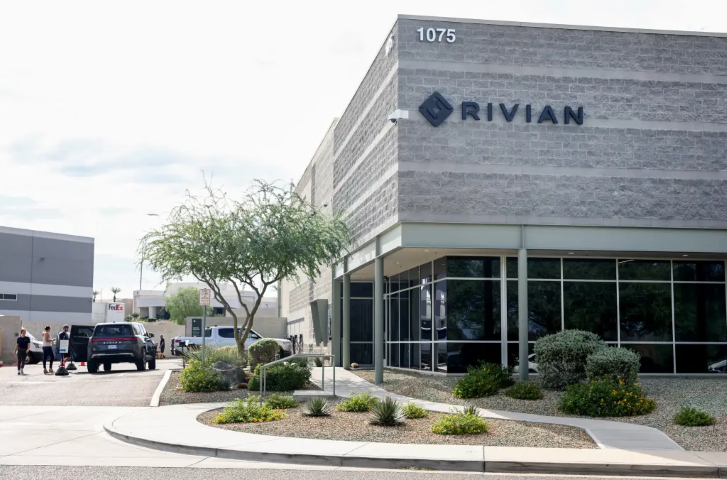
Rivian postpones $5B Georgia plant while launching budget EV. (Getty Images)
Rivian Automotive announced on Thursday a significant adjustment to its expansion strategy, revealing the postponement of its plans for a $5 billion manufacturing plant in Georgia. This decision coincided with the unveiling of a new budget-friendly electric vehicle aimed at competing with Tesla, spearheaded by Elon Musk.
The company disclosed that production of its upcoming R2 model, a midsize electric SUV boasting impressive acceleration capabilities, will now be relocated to its existing facility in Illinois. This shift is intended to expedite the delivery of the vehicle to consumers, with Rivian targeting the first half of 2026 for its release.
While Rivian positions the R2 as an accessible electric vehicle with competitive pricing, starting at $45,000, it acknowledges that it is priced slightly higher than Tesla's 2024 Model Y, which begins at $36,490.
Previously, Rivian had only vaguely stated a 2026 launch timeframe for the R2. However, the company's recent announcement clarified that deliveries could commence as early as the first or second quarter of 2026, emphasizing an acceleration in their original timeline.
CEO RJ Scaringe highlighted the company's ability to expedite production by utilizing its existing manufacturing capabilities in Normal, Illinois, where Rivian also produces electric delivery vans.
The Illinois plant reportedly has the capacity to manufacture up to 150,000 vehicles annually. With the introduction of the R2, alongside its existing R1 SUV, Rivian anticipates an annual capacity of 215,000 units at this facility.
In addition to streamlining production, Rivian aims to achieve significant cost savings, amounting to $2.25 billion in capital expenditures. This decision comes amidst a sluggish demand for electric vehicles, compounded by recent revelations regarding tire emissions' environmental impact, which have cast doubts on the eco-friendliness of EVs.
Investors and industry experts, like Vitaly Golomb, view this move as a prudent measure to alleviate financial strain and anticipate further improvements in delivery schedules.
Despite concerns over cash reserves and consumer demand, Rivian reassures stakeholders of its financial stability, affirming its ability to sustain operations until the R2's launch.
Following the announcement, Rivian's stock experienced a notable surge, indicating investor confidence in the company's strategic decisions. However, challenges persist, with the stock witnessing a year-to-date decline of over 45%.
Rivian's production output for the previous year stood at 57,232 vehicles, with projections indicating flat growth for the current year. This cautious approach reflects the broader slowdown in the electric vehicle sector and underscores the difficulties in expanding beyond early adopters.
While the EV market faces uncertainties, Rivian remains committed to its long-term objectives, including the establishment of its Georgia manufacturing facility. Despite delays, the company emphasizes the facility's strategic importance and its role in realizing Rivian's future ambitions.















